British design studio PriestmanGoode has revealed prototypes for new eco-friendly meal trays and water bottles that could make air travel a little less damaging to the planet. Jenny Southan reports
On show at the “Get Onboard: Reduce. Reuse. Rethink” exhibition at the Design Museum in London until February 9, 2020, PriestmanGoode’s new sustainable tableware and in-flight service concepts explore ways that airlines, crew and passengers can adopt “design thinking and material innovation” to address the huge problem of waste in air travel.
The result of an internal R&D project by PriestmanGoode, which has collaborated with some of the world’s best airlines on cabin interiors and innovative seating concepts, the driving factors were to reduce weight (a key factor in aviation design because the heavier a plane is, the more expensive fuel it burns) and minimise waste.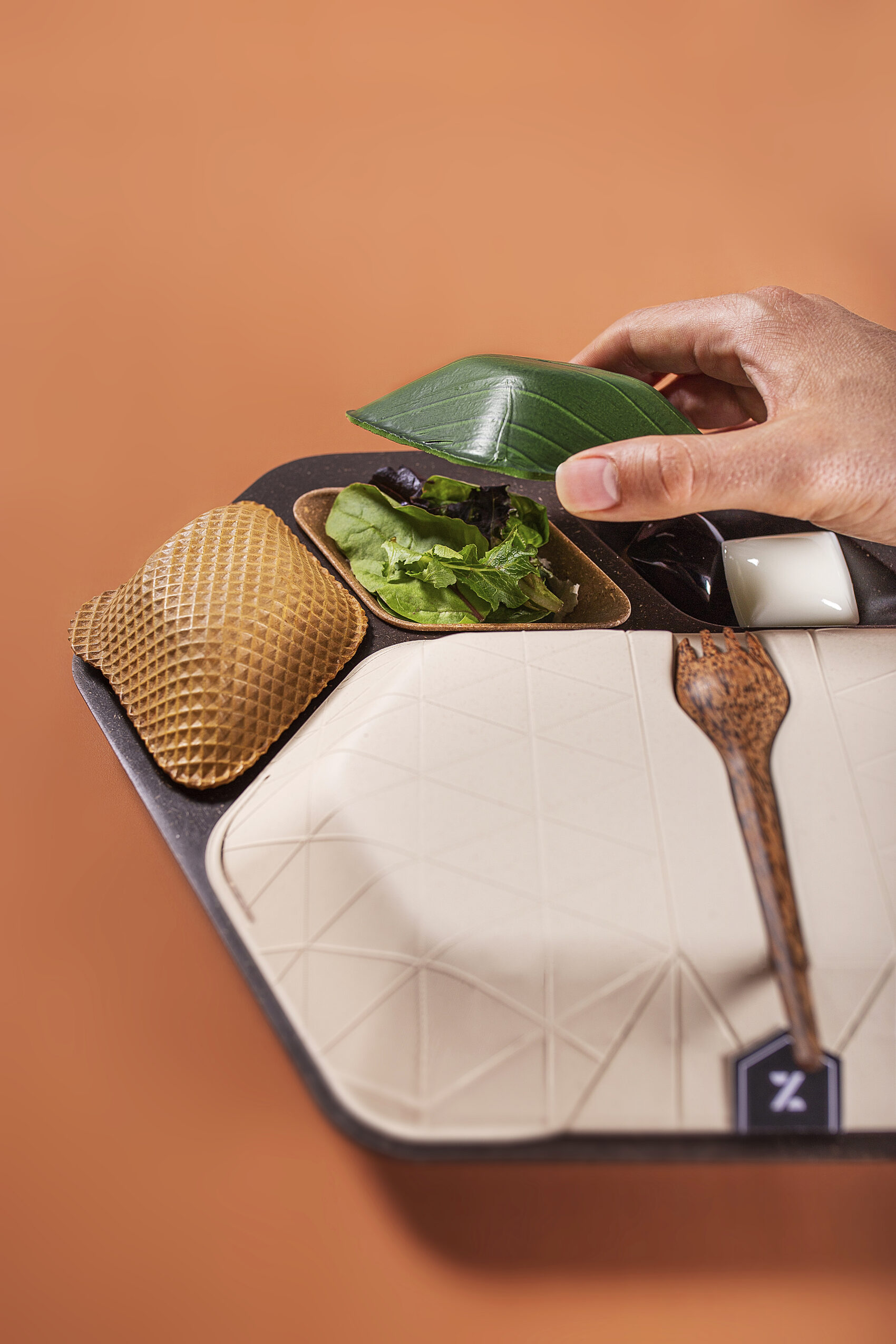 In an attempt to reduce the amount of single-use plastic that come with airline catering (an estimated 500g per person per long haul flight), PriestmanGoode has employed a range of food-safe materials such as algae, bamboo and rice husk in its eco products. Side salads are covered with a banana leaf or algae lid, for example, while cups are made from coffee grounds.
In an attempt to reduce the amount of single-use plastic that come with airline catering (an estimated 500g per person per long haul flight), PriestmanGoode has employed a range of food-safe materials such as algae, bamboo and rice husk in its eco products. Side salads are covered with a banana leaf or algae lid, for example, while cups are made from coffee grounds.
The meal tray, meanwhile, combines edible, biodegradable and commercially compostable materials. Elements that are currently “rotable” (washed and reused), like the tray itself, would continue to be so, while elements that are typically discarded, like single-use plastic, would be replaced with a sustainable alternative.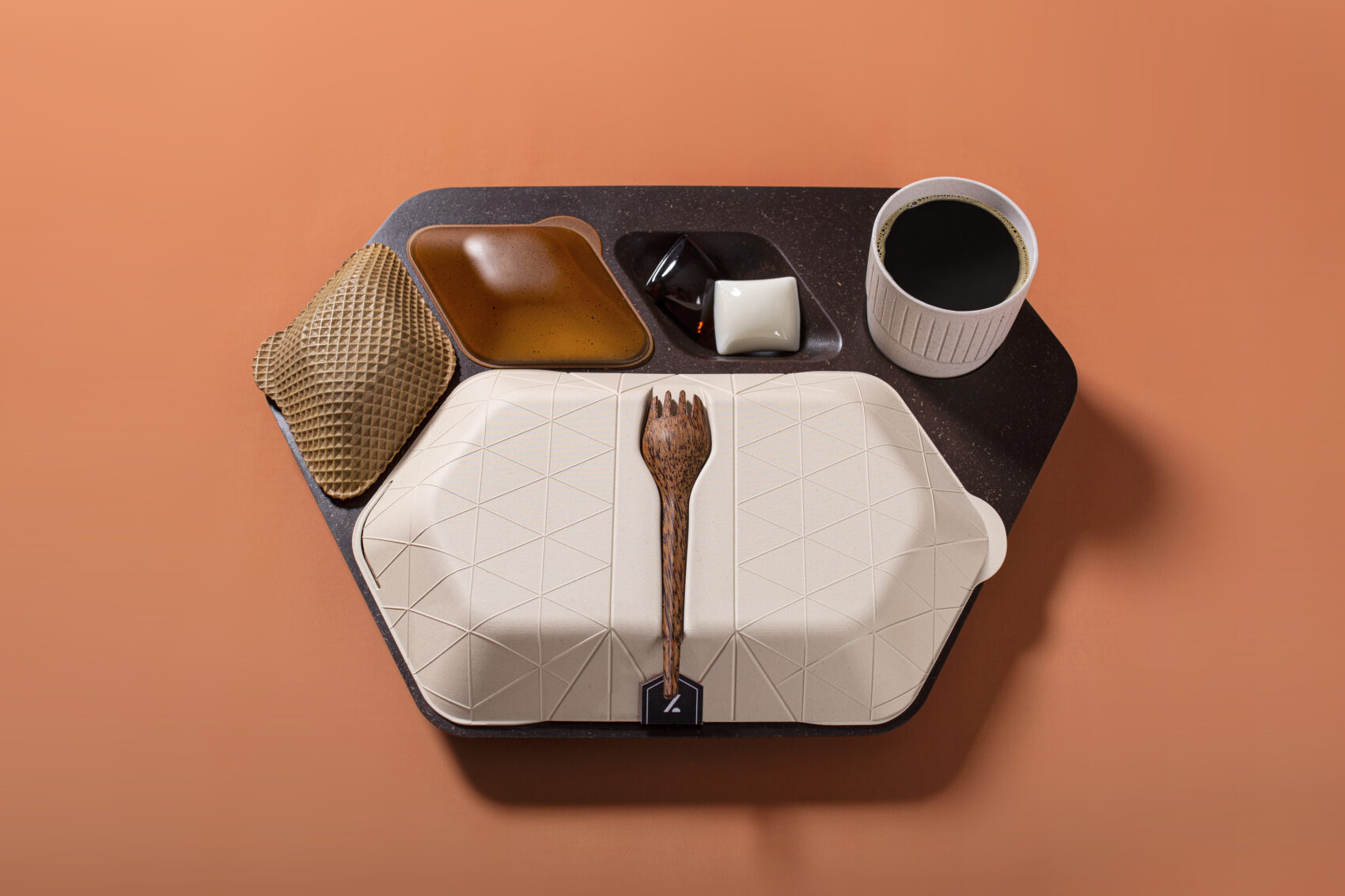
PriestmanGoode sustainable meal tray
- Tray – coffee ground and husks mixed with lignin binder (rotable)
- Base dishes – wheat bran (rotable)
- Side dish lid – algae or banana leaf
- Dessert lid – wafer
- Spork – coconut wood (rotable)
- Capsules (sauces, milk) – soluble seaweed
- Cup outer – rice husk with PLA binder (rotable)
- Cup liner – algae
- Hot main meal lid – bamboo
The main meal lid has been designed to stock all waste items and close into a compostable pack, for more efficient disposal.

PriestmanGoode eco water bottle
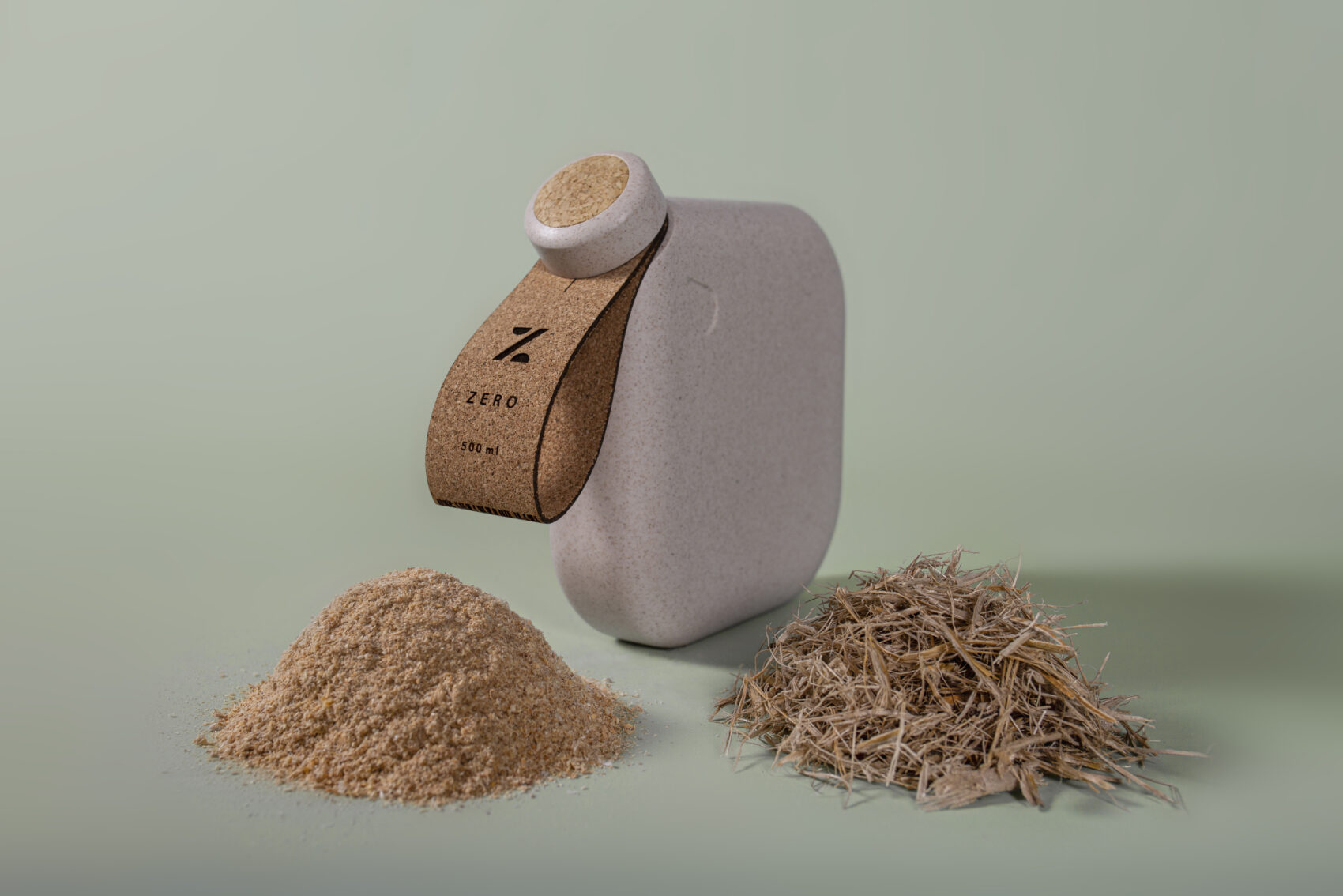 It may not seem that important but when you consider the overall impact of hundreds of thousands of air passengers buying plastic bottles of water before they board on a daily basis, you can appreciate how quickly this waste mounts up.
It may not seem that important but when you consider the overall impact of hundreds of thousands of air passengers buying plastic bottles of water before they board on a daily basis, you can appreciate how quickly this waste mounts up.
In working with the Refill Campaign, Heathrow airport has calculated that if passengers refilled their bottles in departures, the airport could reduce its plastic bottle consumption by 35 million a year.
To help encourage this behaviour, PriestmanGoode has designed a water bottle made from biodegradable and commercially compostable bioplastic and cork. It has been designed for repeated, but short-term use, for example the length of a holiday, and is designed to address the impulse buy at airports and stations.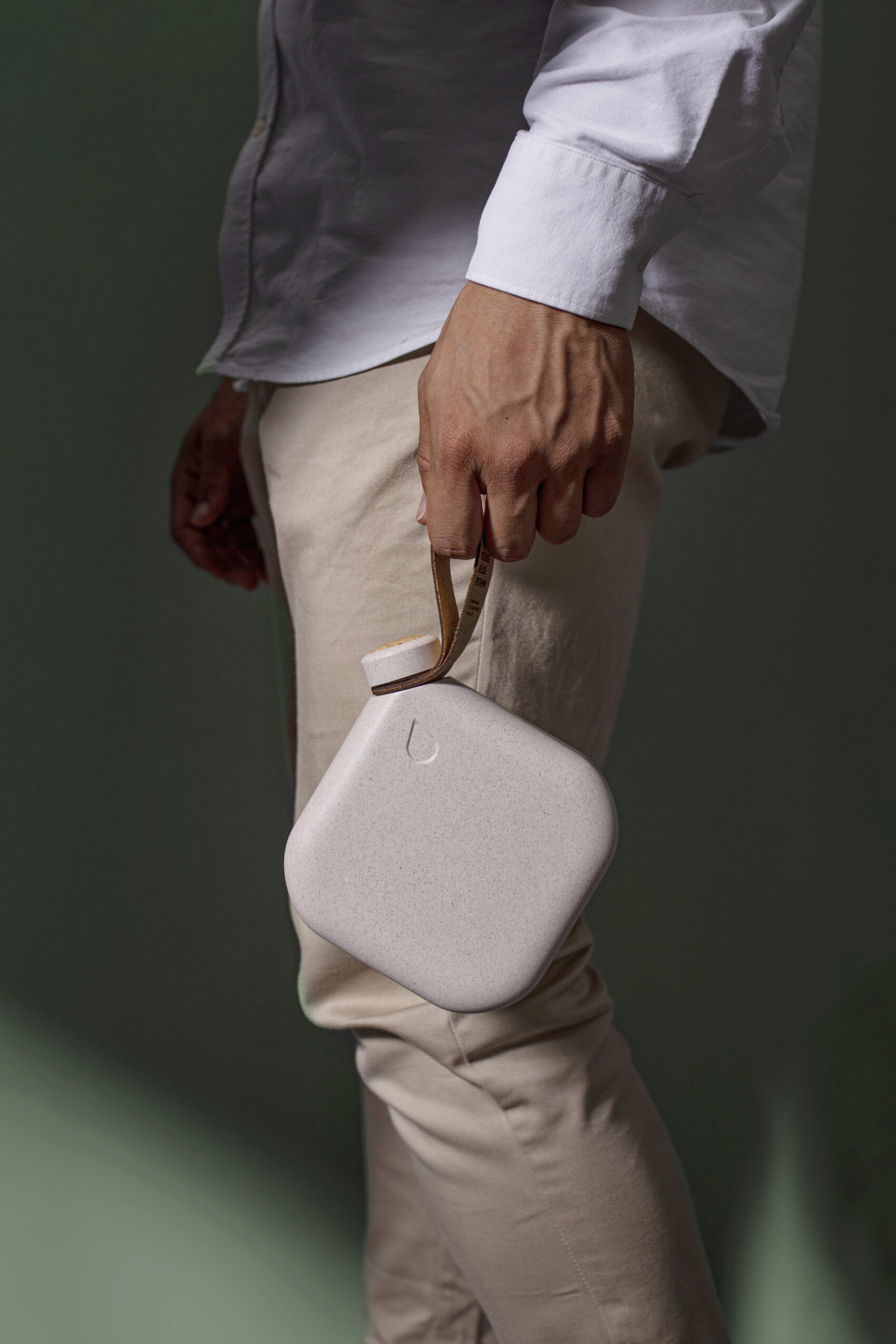 The shape of the bottle has also been specifically designed to take on planes, easily slipping into an aircraft seat pocket without infringing on valuable passenger space.
The shape of the bottle has also been specifically designed to take on planes, easily slipping into an aircraft seat pocket without infringing on valuable passenger space.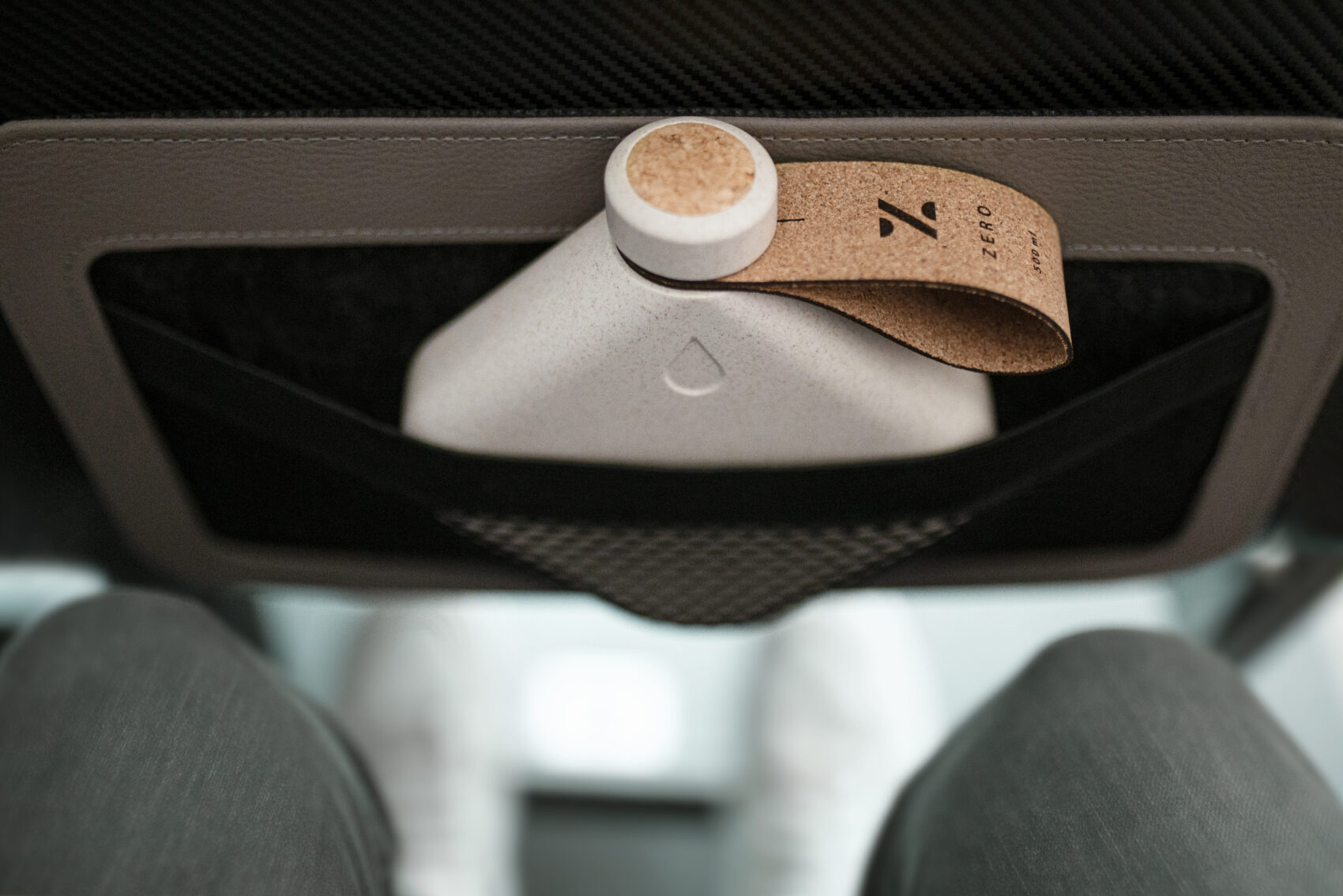 The idea would be to empty your water bottle before security and refill it from a fountain directly after, as well as before boarding. In the air, water cooler carts would be installed on aircraft and in galley areas.
The idea would be to empty your water bottle before security and refill it from a fountain directly after, as well as before boarding. In the air, water cooler carts would be installed on aircraft and in galley areas.
Jo Rowan, associate strategy director at PriestmanGoode, says: “While there is currently no perfect solution, this design proposal aims to encourage suppliers and airlines to rethink the meal service in a more eco-friendly manner, particularly ahead of legislation to ban single use plastic, which in some countries is proposed for as early as 2021.”
Rowan adds: “We don’t want to take anything away from passengers, but a lot of doubling up on things people generally travel with [such as toothbrushes and mini bottles of shampoo], means we end up with vast amounts of waste in landfill.
“We also know that service items are an important touchpoint for airlines, and a way they can differentiate themselves from their competition. We want to revisit the provision of services so that passengers can keep getting what they expect from a great travel experience, but at a lower environmental cost.”
